Dan Buettner has studied five places around the world where residents are famed for their longevity: Okinawa in Japan, Nicoya in Costa Rica, Icaria in Greece, and Loma Linda in California and Sardinia in Italy.
People living in these so-called “blue zones” have certain factors in common – social support networks, daily exercise habits and a plant-based diet, for starters. But they share another unexpected commonality. In each community, people are gardening well into old age – their 80s, 90s and beyond.
Could nurturing your green thumb help you live to 100?It is well-known that an outdoor lifestyle with moderate physical activity is linked to longer life, and gardening is an easy way to accomplish both. “If you garden, you’re getting some low-intensity physical activity most days, and you tend to work routinely,” says Buettner.
He says there is evidence that gardeners live longer and are less stressed. A variety of studies confirm this, pointing to both the physical and mental health benefits of gardening.
Archive for the aging tag
Janet’s Journal: Gardening and Growing Older Gracefully
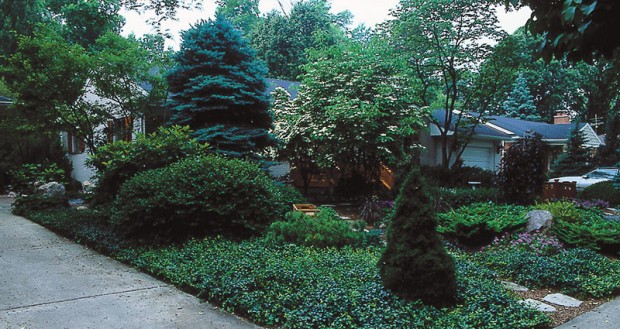
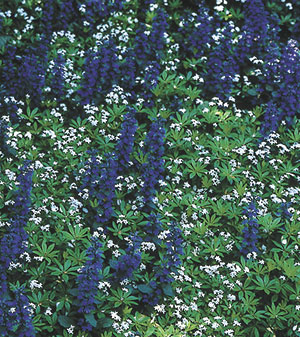
When I was just five years old, Mrs. Kissinger’s age was as definite to me as my own. She was old. Grandparent old. Hair in a bun, crinkly-eye old. I can still hear the quaver in that voice that coached me to recognize weeds, and see the wrinkles on the fingers that pinched an apron into a sling for picking peas. The gold seal on the certificate of age I fashioned for her was that she could call my Dad “Johnny” and “son.”
She always seemed to be smiling when she was in the garden. Recently that memory has become a stand-out, a marked contrast to some of what I’ve been seeing in myself and my friends as we acquire age.
I see fretting (“This is just too much work anymore”) and hear worry (“That bed’s gotten totally out of control”). I’ve commiserated with others over keeping up with the over-ambitious creations of our own youth. Worst, in contemplative moments I’ve recognized in my own negative thoughts the same whines and crying I’ve heard from and disdained in others.
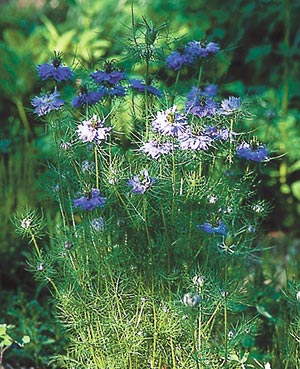
This is not a new phenomenon, this reconciliation of garden and gardener over time. Gardeners have made this life passage before. Some, like Mrs. Kissinger, smiled as they went and their gardens reflected that contentment and calm. She found a way to accept the realities, anticipate the challenges, make the changes, and grow old gracefully.
It’s been my good fortune as a professional gardener to work with many people and to see many approaches to this phase of gardening. I’ve bailed out gardeners who made commitments beyond their physical means or who fell temporarily behind because of an illness or injury. I’ve worked regularly with individuals who need help on certain tasks but not others. I’ve even drawn and executed designs aimed specifically at reducing work for older or less able hands. Most important to me, I’ve had the privilege of working once again for the smiling older gardener and the wise gardener approaching age. I can understand the need and their advice. Here is what they say.
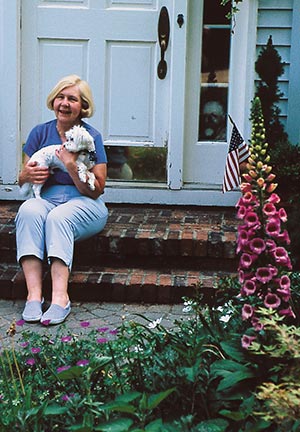
Judith Mueller: Making Choices, Keeping Fit
Judith Mueller doesn’t have a grand plan to garden forever, even though she thinks she will. She takes one season at a time.
Even before she became an empty nester and grandparent, certain of her friends would come over, look at her extensive gardens and say, “You’re crazy! How do you keep this up?”
Her response has always been, “It’s what I choose to do with my time.”
“I know that a garden doesn’t all have to be done today. It’s an ongoing process and it’s not over until I say it’s over.
“So I looked at what shape the gardens were in and decided what I could do myself, what I needed to get help for, and what I can let go of and let someone else do. This year that meant I looked around and got help edging and mulching. Someday I might have to cut back, maybe on the size of my beds. Or maybe I’ll have to ask for more help. But I don’t think about that now because for this year I can handle it.
Just one of the reasons Mueller feels gardening is important is that, “It keeps us mentally alert and healthier.” Her career in a medical profession makes her especially aware of how much good her hobby does her. “I don’t get aches and pains like I know some people do. And people ask me things like ‘How did you lift that?’ So I know I must be strong and healthy for my age.”
Mueller advises that gardeners who want to keep going, keep fit all year. “Don’t rely on gardening alone to keep you in shape through the off season. I’d rather not have to work out, but gardening, especially spring work, can be really overwhelming as you get older, if you’re not in some kind of shape.”
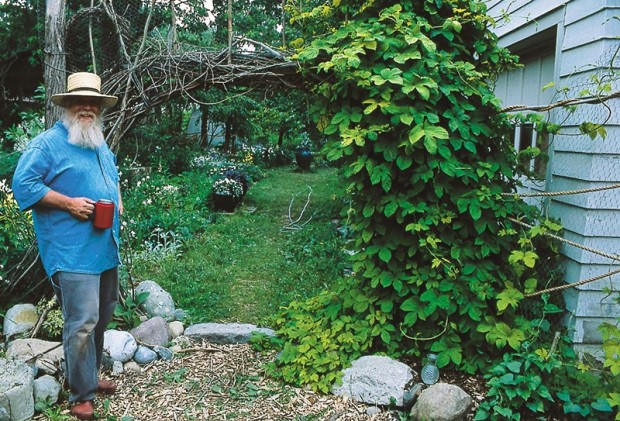
Wil Strickland: Forced to Look
Wil Strickland, whose garden and face are well known in Ann Arbor, laughed when I asked for his input. “It’s ironic you should ask me about how I cope with gardening now that I’ve had a heart attack. Because right now I have never felt better and may be healthier than I’ve ever been in my life. But you’re right, I have had to look at things differently, and I have made some changes.”
He makes four recommendations.
One: Choose your weeds. Pick willing spreaders that you can easily identify and don’t mind having in your garden, and let those go ahead and take over. Something like forget-me-nots will merrily fill in bare spaces, choking out what would be less welcome weeds.
Two: Mulch. You can’t ever do enough of it. As you approach the golden years, beef up your garden, too, so there is less space between plants, less room for weeds to get started.
Three: Start eliminating high-maintenance plants any time. Those plants that need the most work—dividing or pruning or fending off pests—are the ones you should let go. Switch to lower-care plants, such as shrubs and groundcover combinations. You don’t want to be in that situation Strickland cites, “with a garden full of plants you love but can’t possibly maintain anymore. There are so many plants you can try that you might surprise yourself and find out roses or irises aren’t the only things that can make you happy.”
Four: Garden in big pots. “It’s the ultimate answer,” says Strickland. “You can do floral arrangements, or grow vegetables or anything you want. Perhaps you’ll need to have someone help you set them out, but they can be set anywhere without worrying about whether the mower can get around them, they don’t need edging and they’re a wonderful height!”
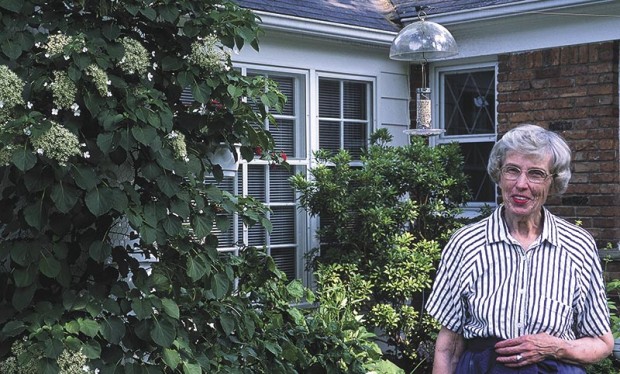
Virginia Smith: Happy to Work
Mueller and Strickland are both starting down a path that Virginia Smith found years ago. “Attitude is the most important thing you need to keep gardening gracefully, which is what I like to think I’m doing. It’s one of those things you have to accept. I think of so many things I did so easily a few years ago that I wouldn’t even attempt now. But rather than railing about what I can’t do, I say look at all I can do.”
Smith gets help a couple of times a year, with big seasonal jobs like mulching and pruning. But most things she keeps doing herself, making little changes all the time in how she does the work. “I can’t get on my knees anymore, so I bend over to plant. After a period of time my back gets tired so then I go do some pruning, which uses a different set of muscles and a different mindset.”
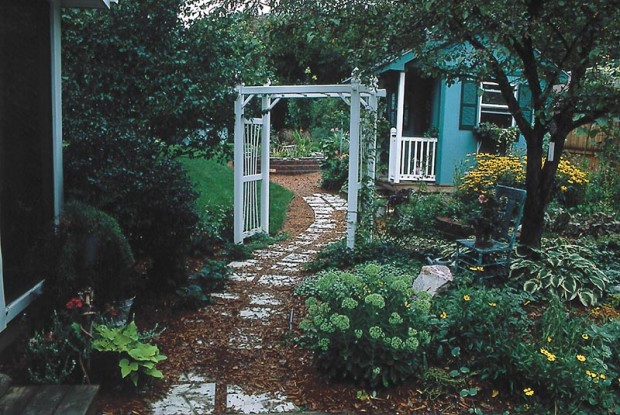
Changes in the garden itself have also allowed Smith to keep gardening. “I use a lot more annuals than I used to, and I’ve designated some spots that are just for annuals, spots that are not too big but just the right size. They’re always ready for me to plant. As soon as the weather lets me plant annuals, I can fill those spots. It’s very gratifying, right away. I also do more annuals in containers, pots I can fill with lighter weight styrofoam and potting soil so they’re light enough for me to move around to just where I need them.”
An altered perspective on what must be done on any one day is helpful, says Smith. “I don’t set deadlines anymore—I just do what I feel like doing. Then I rest a while and if I feel like doing more, I do.”
On the other hand, with its passage, time has become more valuable. “I’m less reluctant to move something if I don’t like it where it is. I’ve either gotten more brave or more foolish!”
Having to decide what one can and can’t accomplish and determine what you most want to do with your time has also changed Smith’s outlook on some plants, even weeds. “I’m more patient with plants I used to pull out because they were too aggressive, things like sweet woodruff that take over. I used to pull them to keep them under control. Now I just keep them from choking plants I really like, and enjoy them wherever they’re pretty enough to just put up with.
“I enjoy gardening more every year,” says Smith, and she smiles.
Article by Janet Macunovich and photos by Steven Nikkila, www.gardenatoz.com.
